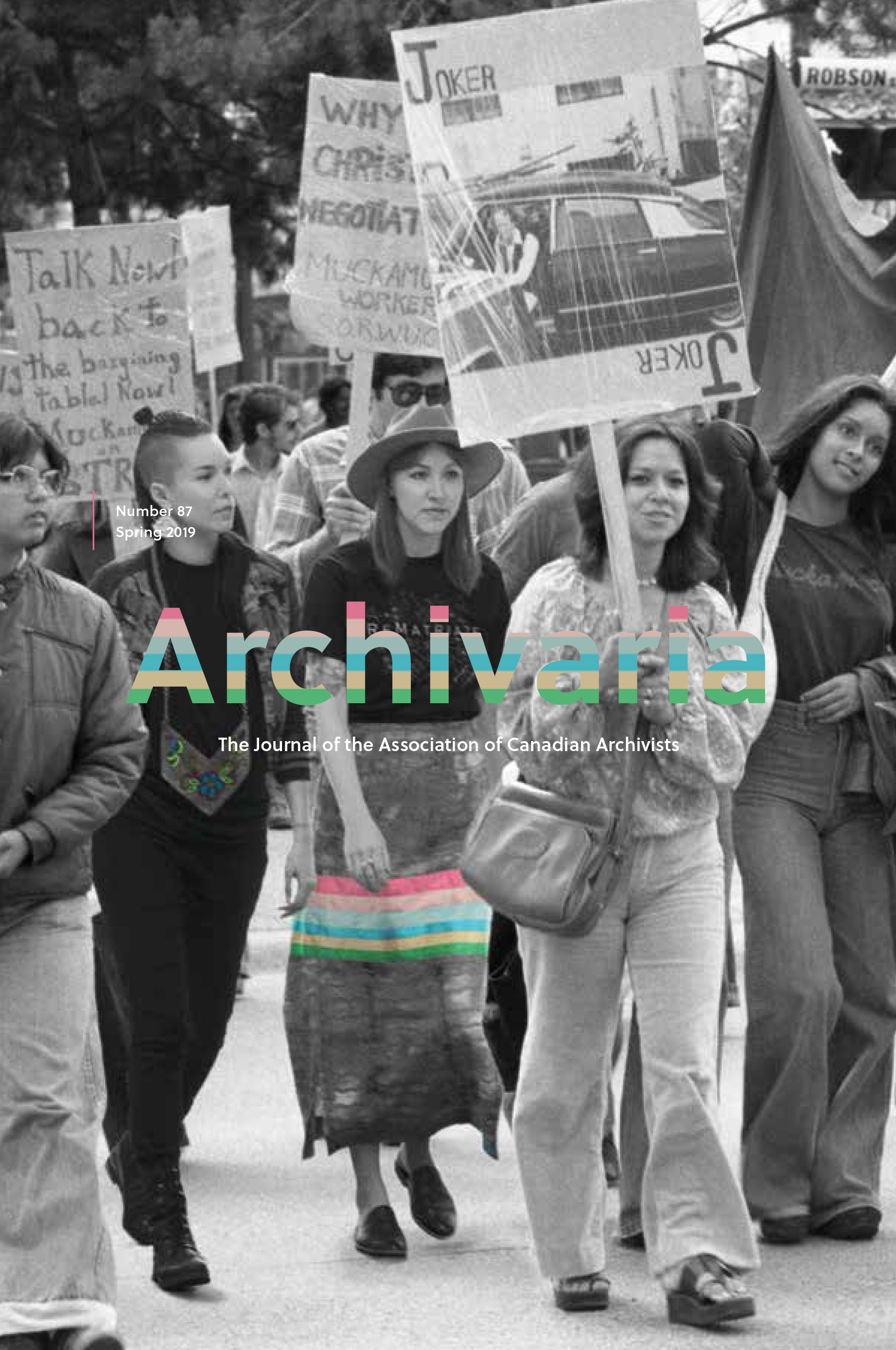The Interview-Document Nexus: Recovering Histories of LGBTI Military Service in Australia
Abstract
Since 2014, I have been coordinating a team project documenting the history of lesbian, gay, bisexual, transgender, and intersex (LGBTI) military service in Australia. The project examines changing policies, practices, and most importantly, the lived experiences of LGBTI military service personnel from the end of the Second World War until the present. When we conceived this project, we expected that we would derive most policy information from records in the National Archives of Australia (NAA) and most information about lived experience from a mixture of media reports and oral history interviews. What has astounded us, though, has been the extent to which several service members kept their own personal archives of documents – most of which related to their personal service and some of which did not appear in the NAA catalogue. In other instances, interview participants’ testimonies or personal documents raised topics that sent us to uncover other uncatalogued archival records. In this article, I draw on examples from our research project where this interview- document nexus proved fruitful in uncovering hitherto hidden histories of LGBTI military service in Australia. Rather than thinking about oral and archival sources as needing to be reconciled, conceptualizing them as a nexus generates new methodological possibilities to uncover new sources that inform each other, enriching both microhistories and grand narratives of the past.
RÉSUMÉ
Depuis 2014, je coordonne un projet d’équipe documentant l’histoire du service militaire lesbien, gai, bisexuel, transgenre et intersexué (LGBTI) en Australie. Le projet se penche sur les changements dans les politiques, les pratiques et, plus important encore, l’expérience vécue par le personnel en service militaire LGBTI de la fin de la Seconde Guerre mondiale à aujourd’hui. Au moment de la conception du projet, nous nous attendions à obtenir la majorité des informations sur les politiques de la National Archives of Australia (NAA) et l’information sur le vécu d’une combinaison de rapports médiatiques et d’entrevues d’histoire orale. Nous avons toutefois étés stupéfaits de voir dans quelle mesure plusieurs membres des services avaient conservé leurs propres archives, dont la plupart des documents se rapportaient à leur propre service et n’apparaissent pas dans le répertoire de la NAA. Dans d’autres cas, les témoignages des participants aux entrevues ou les documents personnels nous mettaient sur la piste d’autre matériel d’archive non répertorié. Dans cet article, je m’inspire d’exemples tirés de notre projet de recherche où ce lien entrevue-document s’est avérée profitable en fait de découvertes d’histoires de service militaire de LGBTI en Australie qui auraient autrement été passées sous silence. Plutôt que de voir les sources orales et archivistiques comme étant à réconcilier, les conceptualiser comme étant en relation fait émerger de nouvelles possibilités méthodologiques afin de découvrir de nouvelles sources qui se nourrissent l’une l’autre, enrichissant ainsi à la fois les micro-histoires et les grands récits du passé.
Authors of manuscripts accepted for publication retain copyright in their work. They are required to sign the Agreement on Authors' Rights and Responsibilities that permits Archivaria to publish and disseminate the work in print and electronically. In the same agreement, authors are required to confirm that "the material submitted for publication in Archivaria, both in its paper and electronic versions, including reproductions of other works (e.g. photographs, maps, etc.) does not infringe upon any existing copyright." Authors of manuscripts accepted for publication retain copyright in their work and are able to publish their articles in institutional repositories or elsewhere as long as the piece is posted after its original appearance on archivaria.ca. Any reproduction within one year following the date of this agreement requires the permission of the General Editor.





